Greg built the pasture pen from scratch. I'm really impressed because he built it based on seeing pens at Polyface and looking at pictures in books. I sure couldn't do it! He did an awesome job on it.
The pens are designed to give the chickens maximum protection from weather and predators while also allowing them to free range on grass and get sunshine and fresh air. Not too shabby a life for a chicken! I could pull out my soap box and rant about factory chickens but it's not worth the effort. I'm really proud that we are raising chickens in a humane, healthy and natural environment. They aren't the most beautiful birds you'll see, but they will be so yummy!
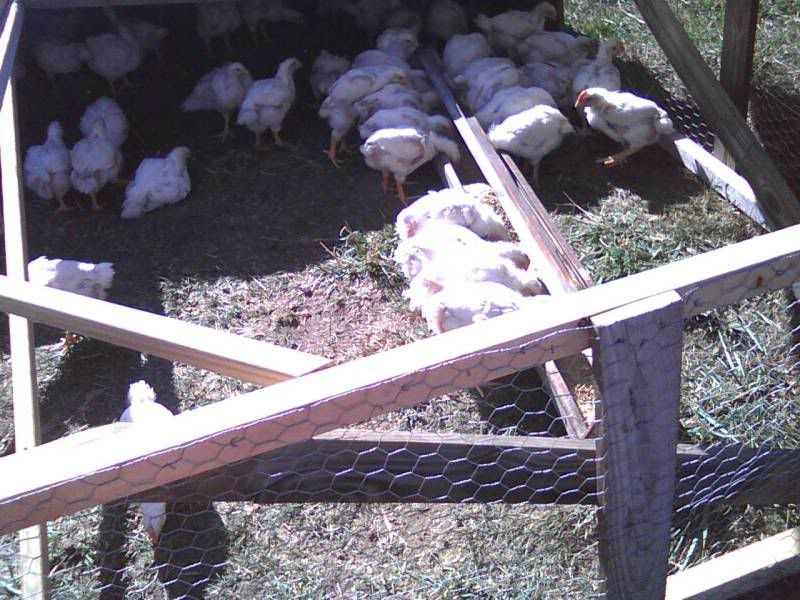 |
| Out to pasture. This section normally has a solid roof over it. It's open here so I could feed them. |
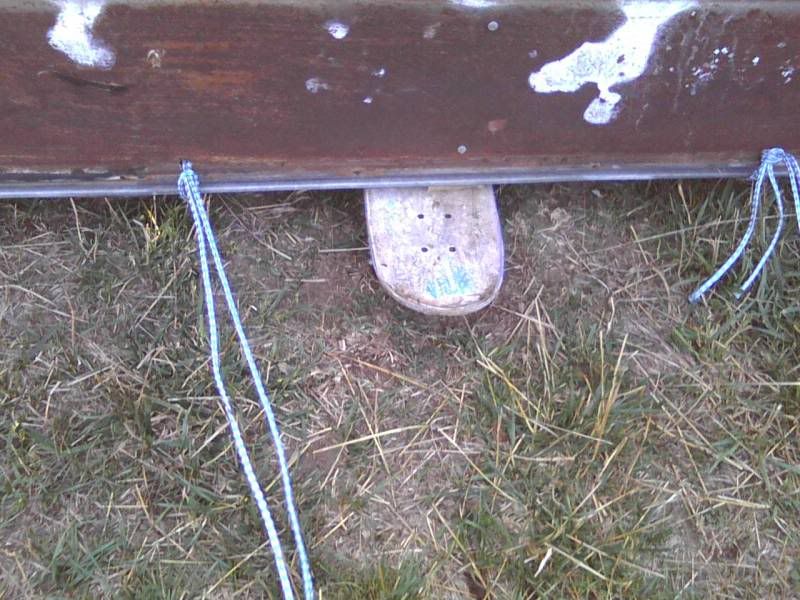 As for the construction of the pens, we went as redneck as possible. Well, not really. Greg did recycle a lot which is pretty cool and helps keep costs down. Old metal roofing was used on the sides, wood from a torn down privacy fence became support beams. And Sammy's old skate board is temporarily being used to help transport the pen each morning when it's moved. Eventually we'll have wheels or a dolly to help move it. Greg sticks the skateboard under the center of the back, then goes around front and pulls the entire contraption forward twelve feet, very slowly. As it moves forward, so do the chickens.
As for the construction of the pens, we went as redneck as possible. Well, not really. Greg did recycle a lot which is pretty cool and helps keep costs down. Old metal roofing was used on the sides, wood from a torn down privacy fence became support beams. And Sammy's old skate board is temporarily being used to help transport the pen each morning when it's moved. Eventually we'll have wheels or a dolly to help move it. Greg sticks the skateboard under the center of the back, then goes around front and pulls the entire contraption forward twelve feet, very slowly. As it moves forward, so do the chickens. Three quarters of the roof is covered for protection from the weather (rain and sun) as well as protection from predators. The waterer is in the sun which forces these lazy birds out into the sunshine for the sun's Vitamin D. The chicken wire roof and the metal roof to the right of it are both removable and are not permanently attached. We keep a five-gallon bucket up on top to collect rain water. The bucket feeds down into the waterer in the pen. We haul water to it as needed but hope that rain will give us a hand from time to time.
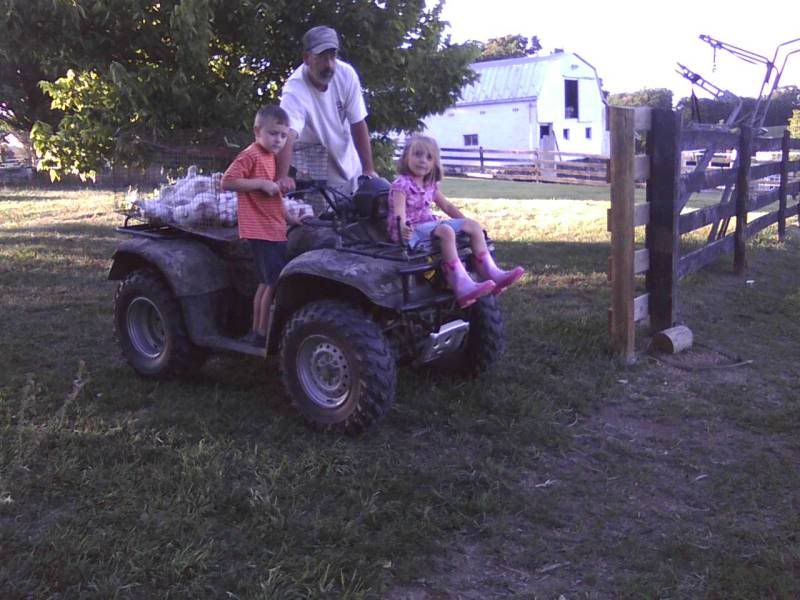 |
| Transporting the chicks from the white barn out to the pasture. |
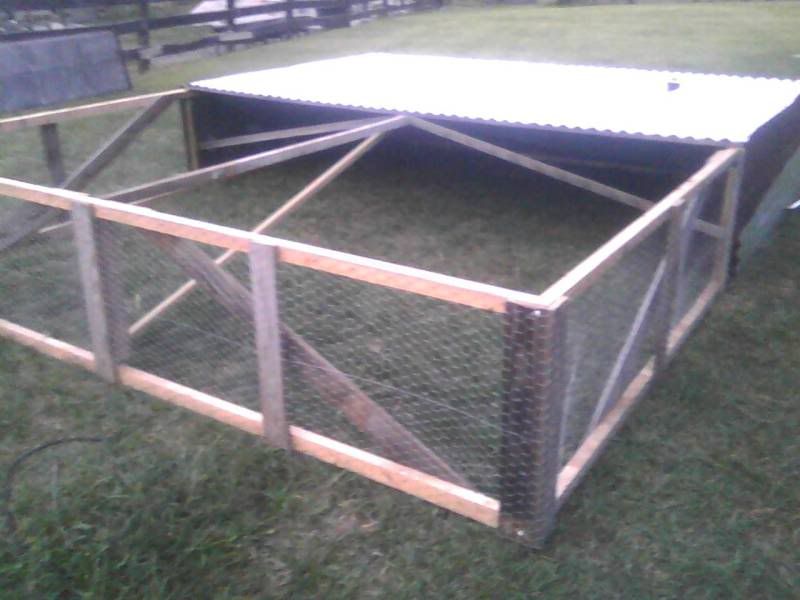
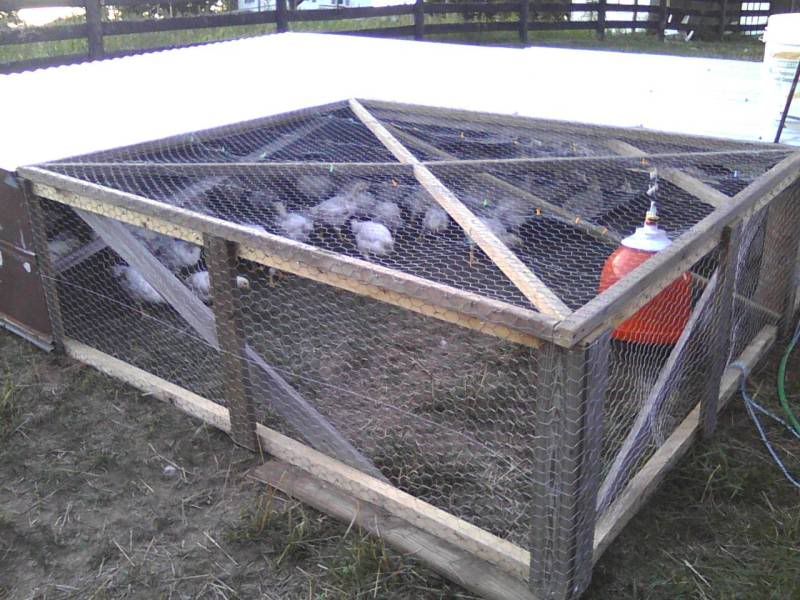
No comments:
Post a Comment